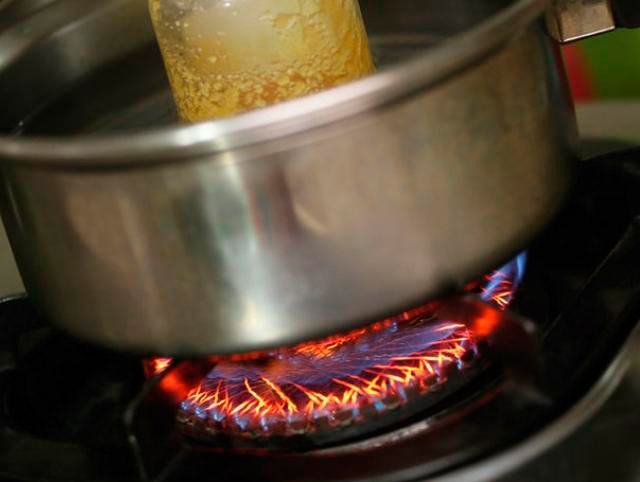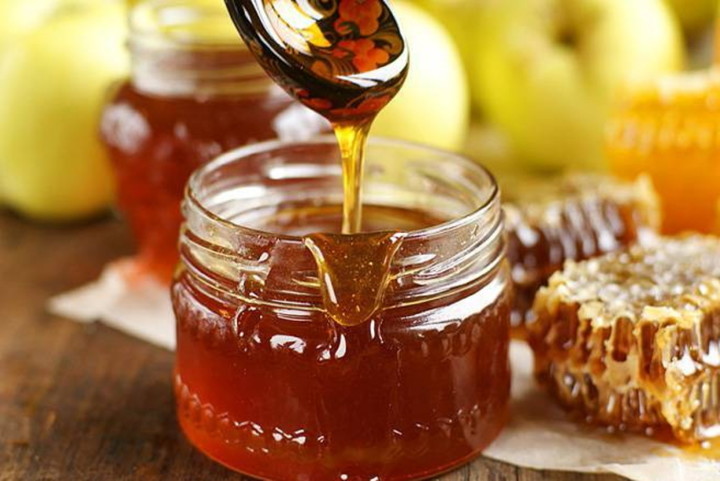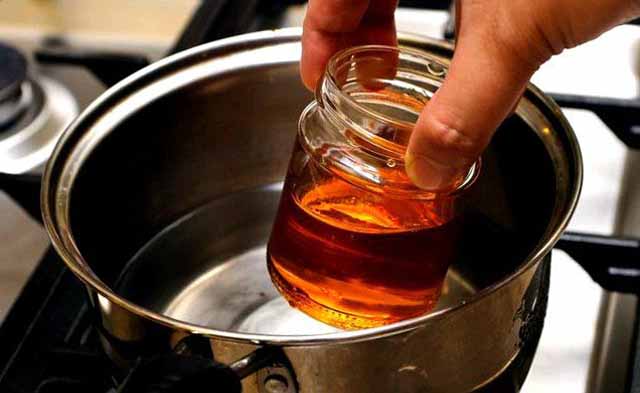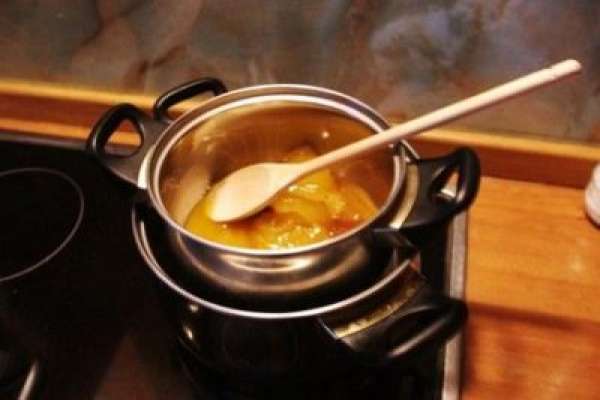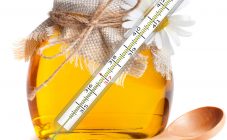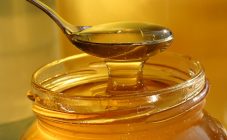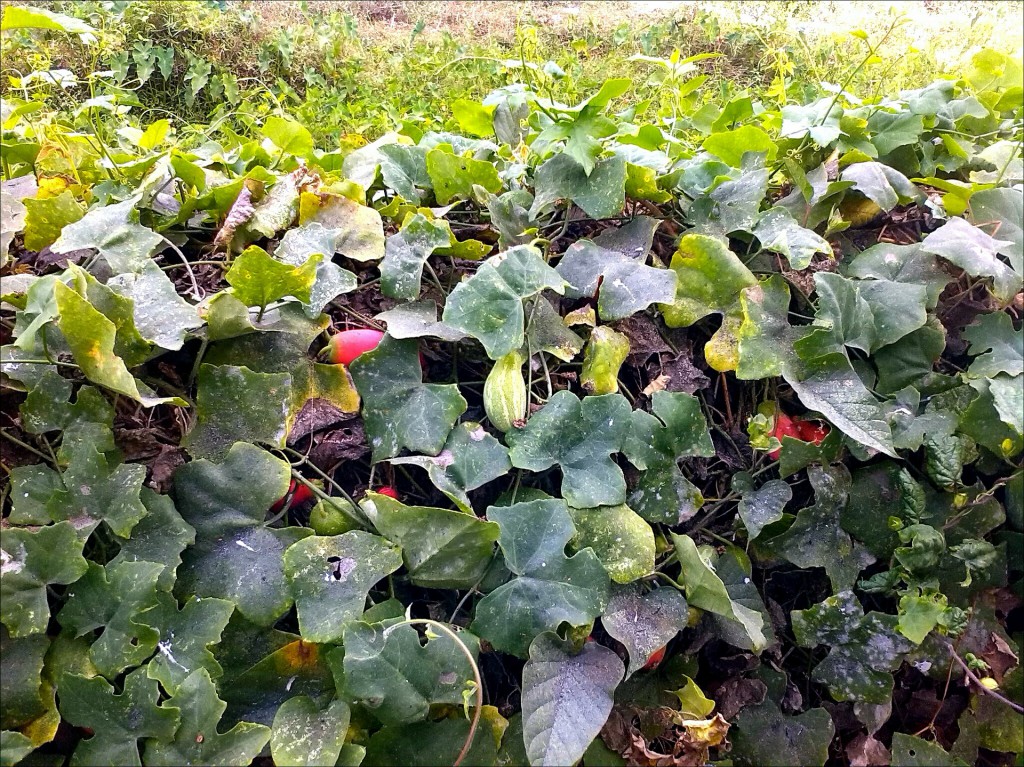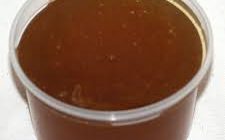Content:
In culinary recipes, especially in baking recipes, honey heated or melted in a water bath is often mentioned. But it should be borne in mind that under the influence of high temperatures, the properties of this useful product change greatly. The question of whether it is possible to reheat honey cannot be answered unequivocally.
Can honey be heated
It is worth figuring out if honey can be added to baked goods. For baking, as a rule, it should be liquid. To melt the thick sweet mass, it must be heated. Therefore, homemade confectionery lovers should know if honey can be heated.
The product intended for consumption does not need additional heating. However, heating may be needed to:
- preparation of confectionery;
- cosmetic procedures;
- treatment according to traditional medicine prescriptions;
- packaging for the sale of a product that has time to be candied.
Of course, for this purpose the temperature can be slightly increased. But it must be done so that the valuable beekeeping product does not lose its useful properties. If the heating season is in full swing, it is quite simple to do this: just hold the container with honey near the battery. Heating will take a long time, but it will be gradual and not abrupt; it is easy to achieve the desired temperature under such conditions.
Does honey lose its properties when heated
Beekeepers and scientists have long been arguing about whether it is possible to heat honey. They also argue about the temperature to which honey can be heated. It is important for all lovers of this product to know whether honey loses its properties when heated. Experts say that with a slight temperature effect, the beneficial properties are preserved. However, if you heat this substance to 40 degrees and above (and some experts consider the temperature to be "critical" at +20 degrees), the beneficial substances gradually begin to evaporate. So, with prolonged thermal exposure, such biologically active components completely disappear (evaporate), such as:
- flavonoids;
- natural antioxidants;
- vitamins;
- substances that impart a characteristic pleasant sweet aroma.
In fact, only sugars remain in the composition - glucose and fructose. When heated, honey can hardly be called a "natural antibiotic" or "medicine." It will turn into a sweet liquid, poor in composition, and will also lose its unique smell. That is why it is strictly forbidden to store it next to steam heating radiators, in the sun (for example, on the sill of a window facing south) or in a room where it is very warm. The storage temperature should not exceed +25 degrees.
Note! Using the refrigerator is also not worth it. Cold contributes to the disappearance of many useful components and also destroys the structure of the product.
To what temperature can honey be heated
Experienced beekeepers and expert chemists unanimously agree that this product needs to be heated very slowly because:
- heating up to 20 degrees is absolutely harmless;
- if the substance heats up to 20 - 35 degrees, the beneficial properties gradually begin to evaporate;
- at +40, a healthy and nutritious product turns into odorless sweet melted water;
- when heated from +40 and above, decomposition products of sugars begin to stand out; some of them can be harmful to health and cause allergic reactions.
Since it is rather difficult to carry out heating with a thermometer in hand, it is best to do it in a water bath, at the lowest heat. In this case, you need to constantly be at the stove and monitor the temperature. As soon as it approaches 40 degrees, the product is immediately removed from the heat.
What is released when heated
In newspapers, you can often find notes that honey turns into poison when heated. Contrary to popular belief, heating does not release carcinogens that cause cancer. However, under the influence of temperature, that is, when heated, the sugars that make up the product break down into separate components. These organic compounds are of no benefit to the body. Moreover, in some people (but by no means all), they can cause allergic reactions or individual intolerance. But food poisoning caused by eating overheated honey is rare.
Note! Most often, such poisoning is not caused by honey itself, but by a large amount of it, eaten at a time.
Why you can't warm bee honey
When asked why honey cannot be heated, the experts answer unequivocally: it cannot, because this product ceases to be honey. Anyone who remembers the school chemistry course will guess what will happen if bee honey is heated. The chemical composition of the "natural antibiotic" changes significantly. Accordingly, this substance can no longer be used for the treatment and prevention of various diseases, as well as for the prevention of vitamin deficiency. Moreover, an overheated beekeeping product is much more likely to cause allergies than one that has not been heated.
Does it become poisonous when heated
You can hear a variety of opinions about whether it is possible to cook honey, up to a categorical ban. Some beekeepers believe that this valuable product turns into a deadly poison when heated. However, in reality this is not the case, because:
- heated honey does not contain carcinogens and toxins;
- sugar breakdown products do not benefit the body, but they are not harmful either. In addition, their concentration in the heated mass is rather low;
- This valuable thermally processed product has long been used in cooking to add a sweet taste to baked goods (and is also used as a marinade for baking chicken). It is used by both home and professional chefs;
- In order for the breakdown products of glucose and fructose to become poisonous, honey must be heated to a very high temperature. This is not possible at home.
Thus, a valuable beekeeping product that is heated in a water bath turns into another substance with a different chemical composition. But this substance itself is not poisonous.
Experienced beekeepers categorically do not recommend using a microwave oven for heat treatment, since in this case the heating will be uneven. However, when it comes to the microwave, the same goes for many other products.
Also, lovers of healthy sweets should keep in mind that honey, which is sold in stores and supermarkets, is most often pasteurized, that is, it is already heated to a high temperature and cooled down. Therefore, it is best to shop at familiar beekeepers or at agricultural markets, where you can guaranteed to purchase a "live" product with all the useful properties.
